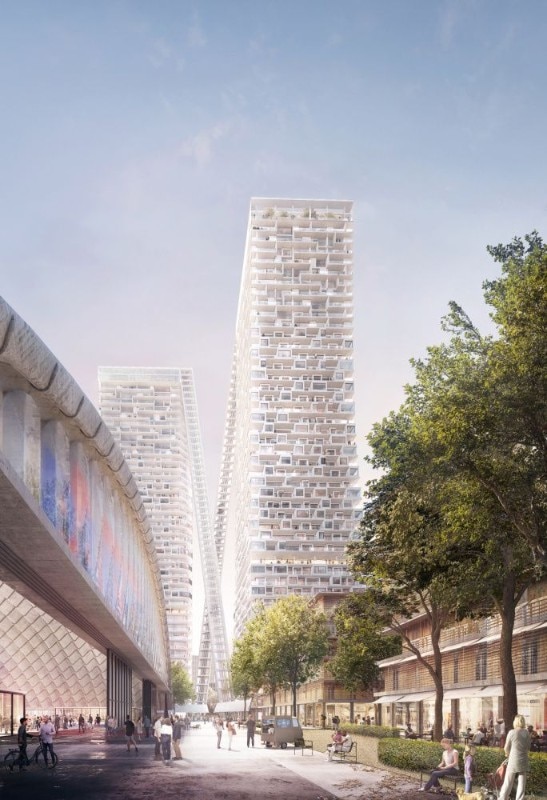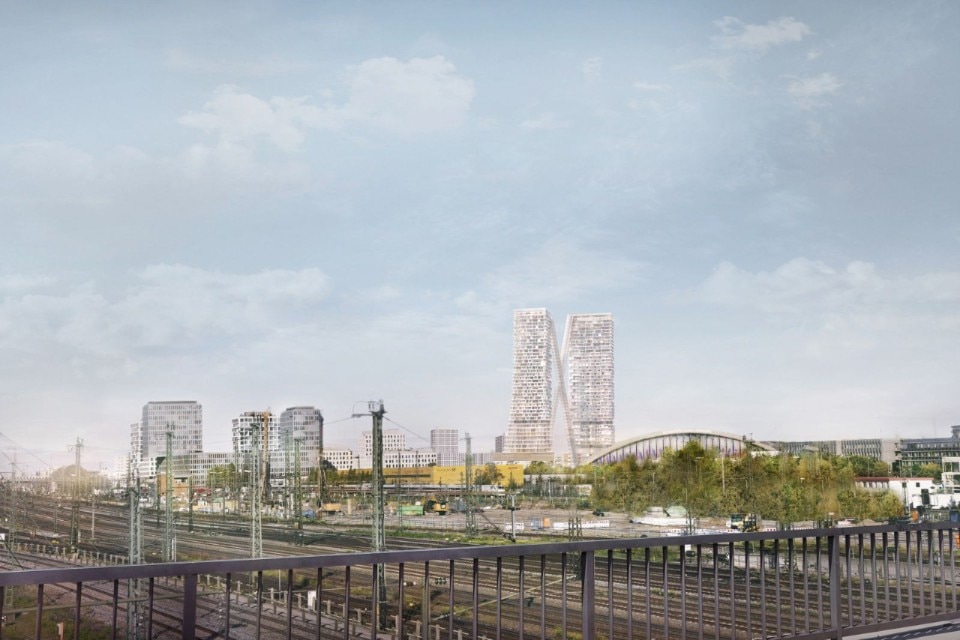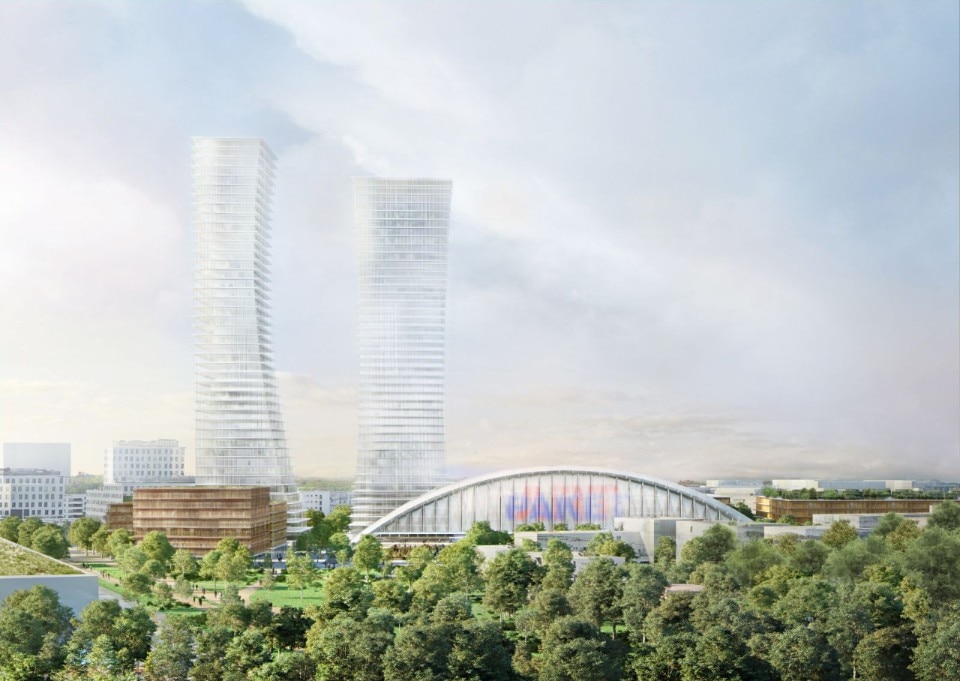Munich, Germany’s third largest city, is a city that has always been iconographically characterized by the elevations of church spires visible from vantage points north of the city. For this reason, a local moratorium on all structures and architecture exceeding 100 meters in height was passed in 2004. This limit was symbolically chosen to prevent new buildings from competing with the Bavarian capital’s best-known symbol: the twin towers of the Frauenkirche cathedral, 109 meters high and topped by the characteristic onion domes in 1524.

A recent project by Herzog & de Meuron may soon change this paradigm, however. Two 154-meter-high towers are in fact planned as part of a larger mixed-use redevelopment project. Even if these new structures would be located some distance from the heart of the city and would not directly block any key views of the cathedral, the hypothetical construction has already created criticism from residents, not only because of the direct effect on the surrounding environment, but also as a precedent that could set the stage for more tower buildings throughout Munich.
The debate goes beyond just the development in question. Like many German cities, Munich is struggling with a housing crisis, and taller buildings are seen as a way to alleviate the shortage of new homes.
Unveiled to the public in 2019, the new master plan signed by the Swiss firm envisions the construction of the two towers, creating a landmark within the city. A neighborhood of six-story courtyard buildings would then rise around the central hall, providing space for housing and commercial activities.

In addition to aesthetic concerns, activists involved in the dispute also question the idea that tall buildings can actually relieve housing pressure: they point out that usually skyscprapers offer high-rise solutions for those who who have the economic readiness to found other housing options.
At present, the fate of the tower plan still hangs in the balance: a majority of experts consulted by the city during the planning review were in favor of approval, but public consultation has not yet been completed.


